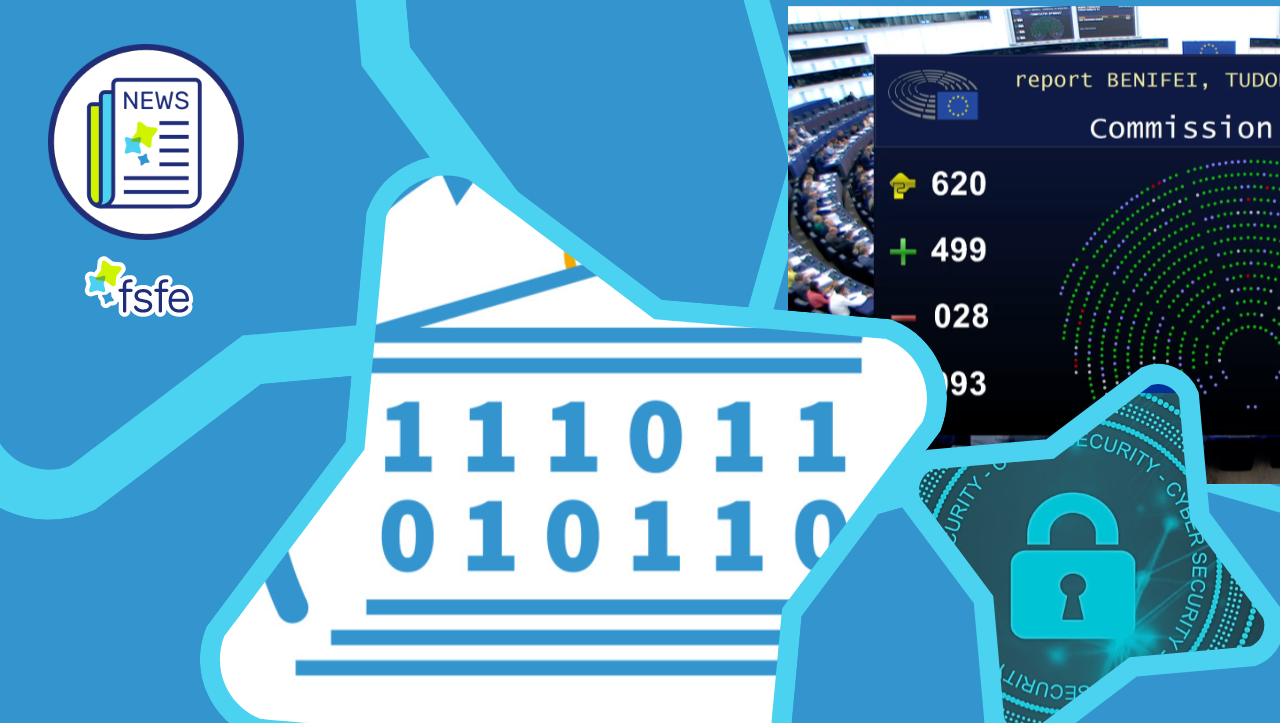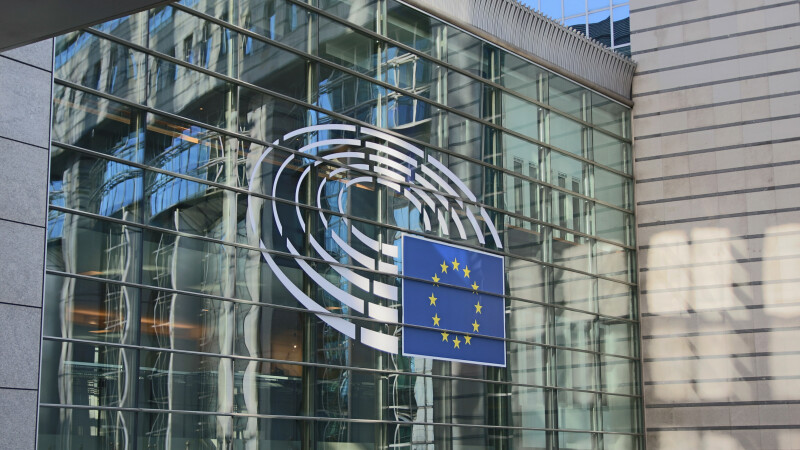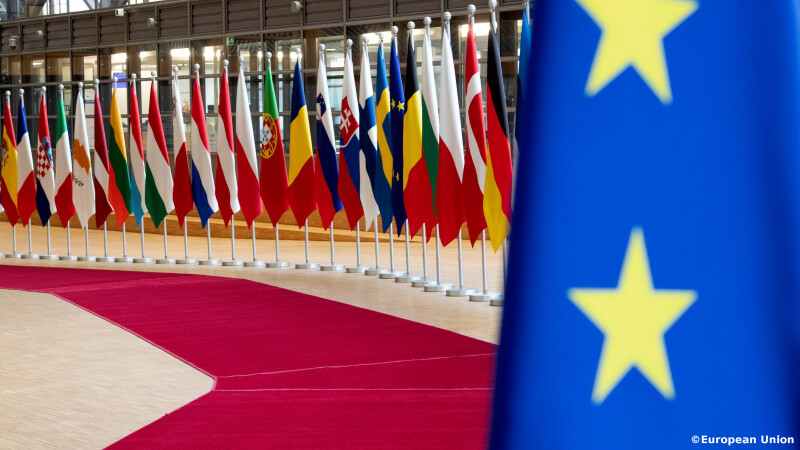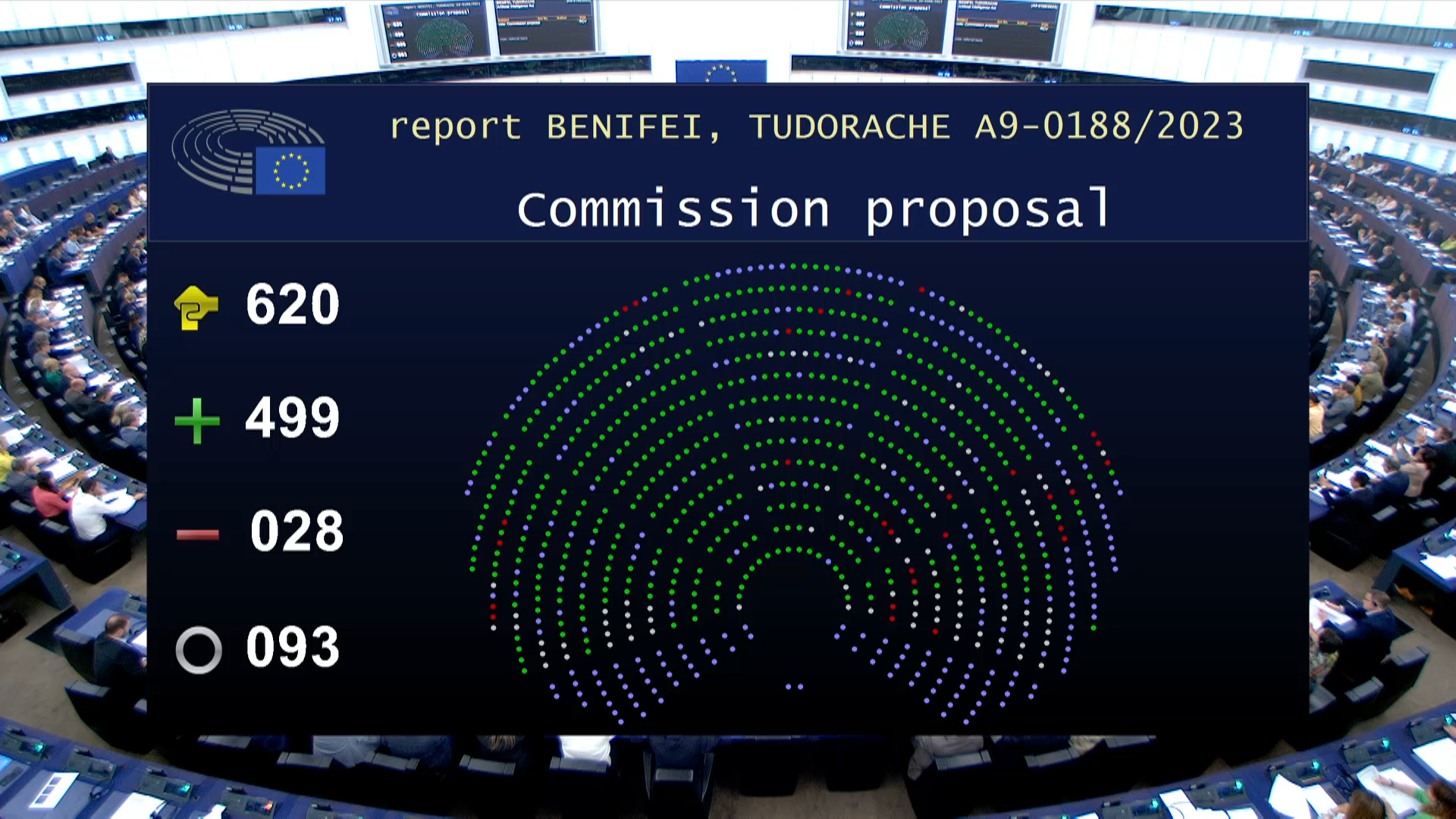Interoperable Europe +++ Cyber Resilience Act +++ AI Act
mardi 4 juillet 2023 à 01:00Interoperable Europe +++ Cyber Resilience Act +++ AI Act
July is here and so is our newsletter! In this issue we have some updates on the latest status of the Interoperable Europe Act, the Cyber Resilience Act, and the Artificial Intelligence Act. The competition YH4F has just ended.

Table of contents
- Cyber Resilience Act: First committee backs FSFE demand to protect Free Software
- IEA: EU Parliament advances in strengthening the role of Free Software, yet needs to improve...
- … and Council to exclude relevant stakeholders from contributing to an Interoperable Europe
- Artificial Intelligence: EU: Majority for AI Act – and safeguards for Free Software
- Germany: questions about the status of dPhoenix
- 'Youth Hacking 4 Freedom': second edition ended
- Planet FSFE: check out latest community news
- Get Involved - Become a translator
- Take Action! Add our email addresses to your contacts
- Quote of the month
- Contribute to our Newsletter
Cyber Resilience Act: First committee backs FSFE demand to protect Free Software
The Internal Market and Consumer Protection Committee (IMCO) launched a landmark decision to protect Free Software developers in the Cyber Resilience Act (CRA).
IEA: EU Parliament advances in strengthening the role of Free Software, yet needs to improve...
The two EP Committees for opinion, IMCO and LIBE, have adopted their texts on the Interoperable Europe Act. While both recognise the importance of Free Software for this regulation, the inclusion of the Free Software community in the Board remains uncertain. The wording on proper monitoring and evaluation goes in the right direction.
...and Council to exclude relevant stakeholders from contributing to an Interoperable Europe
The current draft from the Council on the Interoperable Europe Act is limiting the Interoperable Europe Board, and with this excluding relevant stakeholders from contributing to a more interoperable and innovative Europe. There is also a lack of improved wording in the area of monitoring and budgeting.

Artificial Intelligence: EU: Majority for AI Act – and safeguards for Free Software
The European Parliament voted in favour of the AI Act with 499 votes in favour, 28 against, and 93 abstentions. Free Software is given safeguards; these rules must now be defended in the inter-institutional negotiations (also known as trialogue in which representatives of the Parliament, the Council and the Commission agree on an final text) and transferred to the Cyber Resilience Act and the Product Liability Directive.
Germany: questions about status of dPhoenix
A Free Software office and collaboration suite for the public sector is one of the projects with which the German government aims to fulfil the goals of the coalition agreement in relation to Free Software. But a closer look at the project raises the question whether our long-term demands for 'Public Money? Public Code!' are actually met.
'Youth Hacking 4 Freedom' second edition ended
The second edition of the Youth Hacking 4 Freedom contest has just ended. Almost 70 teenagers from all over Europe registered for this second edition that will have its award ceremony in October.
Check out the YH4F website for the latest updates about this competition!
Planet FSFE: check out latest community news
The FSFE planet is a aggregation of blog posts and thoughts of the Free Software community. Check out the latest posts about the FSFE booth in Veganmania in Vienna or the latest news from the KDE community.
Check out the latest posts
Get Involved - Become a translator!
Help us reach people in your country! Join our amazing group of volunteers who help translate our messages into their native languages. The Spanish translation team will also need an extra hand in the coming months as Spain holds the EU presidency for the second half of the year.
Check out how to contribute here
Take action! Add our email addresses to your contacts
Please remember to add contact@fsfe.org (and similarly with the rest of @fsfe.org email addresses) to your address book to ensure that our messages reach you and not your spam box.
Quote of the Month
"The FSFE does great work to further software freedom locally, nationally and in the EU and I enjoy the podcast and the News RSS so it felt natural to become a supporter. I also want to be more involved with the free software community."
Einar Mostad; English teacher, musician, IT studentContribute to our Newsletter
We would love to hear from you. If you have any thoughts, pictures, or news to share, please send them to us at newsletter@fsfe.org. You can also support us, contribute to our work, and join our community. We would like to thank our community and all the volunteers, supporters, and donors who make our work possible, with a special mention to our translators who make it possible for you to read this newsletter in your mother tongue.
Your editor, Ana Galán


